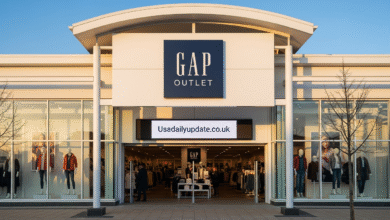The Most Disliked Host on QVC: A Closer Look

Introduction to QVC
QVC, short for Quality Value Convenience, is a premier home shopping network established in 1986. It revolutionized the way people shop by combining live television broadcasts with direct sales, allowing viewers to purchase products without leaving their homes. QVC was the brainchild of Joseph Segel, who recognized the potential for televised shopping, thus beginning a new era in retail. From its inception, the channel focused on providing an engaging shopping experience through real-time demonstrations and interactive audience participation.
Over the years, QVC has grown remarkably, expanding its reach both nationally and internationally. The network now broadcasts to millions of homes across the United States, the United Kingdom, Germany, Japan, and Italy. QVC’s success can be attributed to its unique approach to selling, emphasizing the importance of storytelling in marketing products. This method allowed hosts to build rapport with viewers, making them feel more connected to the products on offer.
QVC has played a pivotal role in shaping consumer behavior, encouraging impulse buying and promoting direct-to-consumer sales channels. The network has adapted to changing shopping trends, increasingly integrating e-commerce and digital platforms into its business model. This evolution has further solidified its status as a leader in the home shopping industry. As QVC grew, its hosts became vital to the channel’s identity, influencing consumer perceptions and purchasing decisions. However, not all hosts have been embraced equally, leading to discussions about the most disliked host on QVC. Understanding QVC’s journey provides essential context for examining its hosts and the various public sentiments surrounding them.
The Role of Hosts on QVC
Hosts on QVC occupy a crucial position in the network’s operations, functioning as the face of the brand while engaging with potential buyers. Their primary responsibility entails showcasing a plethora of products, guiding customers through features, benefits, and usage in a compelling manner. These interactions do not merely serve a promotional purpose; they help foster a connection between the audience and the product. In turn, this emotional engagement often translates to increases in sales, as viewers feel more confident in their purchasing decisions when presented by charismatic hosts.
The qualities appreciated by viewers often hinge on authenticity, relatability, and expertise. A host demonstrating genuine enthusiasm for the products can captivate audiences, encouraging them to consider a purchase. On the contrary, the presence of a host who resonates poorly with viewers can lead to negative perceptions surrounding the shopping experience. This notion has been observed in discussions around the most disliked host on QVC, illustrating the impact of host personalities on audience reception.
In addition to showcasing products effectively, hosts also play a pivotal role in building the brand’s image. Their interactions form a significant element of QVC’s identity, as they embody the values and goals of the network. A host who aligns well with these principles can influence the brand’s perception positively, drawing in a loyal customer base. Conversely, if a host exhibits unpopular traits or lacks engagement skills, it may contribute to their status as one of the most disliked hosts on QVC.
Therefore, the role of QVC hosts extends beyond mere presentation; they are fundamental to shaping customer experiences and driving brand growth. Ensuring consistency in qualities that consumers admire can thus mitigate negative outputs tied to less favorable hosts, further enhancing the network’s efficiency in product promotion.

Criteria for Dislike
The characteristics that lead viewers to develop a dislike for certain hosts on QVC are multifaceted and can vary from one individual to another. Primarily, presentation style plays a significant role in shaping viewer perceptions. Hosts who demonstrate a lack of enthusiasm or fail to engage audiences effectively may be viewed unfavorably. An overly scripted or robotic manner can hinder authentic connections, which significantly impacts audience enjoyment.
Personality traits further influence public sentiment toward QVC hosts. A host perceived as condescending, overly aggressive in sales tactics, or lacking genuine warmth can alienate viewers. The balance between professionalism and friendliness is critical; those who fail to find this balance may unintentionally cultivate negative feelings among the audience. Moreover, the ability to handle customer interactions is vital. Negative encounters, whether real or perceived, can sour public opinion, as viewers often expect hosts to embody excellent customer service values.
Controversies surrounding a host can also impact their reputation dramatically. Whether related to personal views shared during broadcasts or responses to customer feedback, any misstep has the potential to result in significant backlash. When hosts either intentionally or unintentionally become embroiled in disputes, it can overshadow their professional contributions, leading viewers to associate their name with negativity. This phenomenon contributes to the narrative of the most disliked host on QVC, illustrating how various elements – from delivery style to personal controversies – intertwine to shape viewer opinions. Understanding these criteria provides critical context for analyzing specific hosts, as it highlights the elements that can make or break a host’s standing among the audience.
Spotlight on the Most Disliked Host
Throughout its extensive history, QVC has featured a diverse array of hosts who have contributed to the channel’s success. However, some hosts have drawn significant viewer criticism, leading to surprising debates regarding their on-air presence. Among these, the most disliked host on QVC has emerged, captivating attention not only for their style but also for incidents that have fueled negative feedback from the audience.
This host, who has been with QVC for over a decade, represented a combination of charisma and controversy, which has proven to be a double-edged sword. Viewers have often expressed frustration with the host’s delivery style, which some describe as overly dramatic or unnecessarily verbose. This perceived tendency to overshadow the products being presented with excessive personality and theatrics has not gone unnoticed.
Moreover, specific incidents have catalyzed growing disdain among the QVC viewing community. For example, a notable on-air interaction where the host made dismissive comments towards a customer’s question became a flashpoint for criticism. Social media platforms lit up with commentary regarding the perceived lack of respect shown to viewers, further solidifying this host’s reputation as one of the most disliked individuals in the QVC lineup.
Another contributing factor to their negative image is the frequent use of promotional language that some viewers find disengaging or insincere. Many consumers prefer authentic engagement, and the host’s style often contrasts with these expectations. As discussions surrounding the most disliked host on QVC continue, it is essential to consider both the host’s role and the audience’s reactions to understand the broader implications of their presence on the network.
Viewer Reactions and Feedback
The topic of the most disliked host on QVC has sparked considerable discussion among viewers across various platforms. Many fans and critics have taken to social media to express their opinions, often sharing vivid experiences that highlight their disdain. One viewer commented on Twitter, “I just can’t stand the way the most disliked host on QVC presents products. It feels so disingenuous.” Such sentiments echo a common theme among the audience, emphasizing a perceived lack of authenticity in the host’s delivery.
Online forums have similarly illuminated viewer experiences, with users posting their appraisals and reviews. One popular thread referenced a viewer survey that showed an overwhelming percentage of respondents indicating unfavorable views towards the host in question. “I usually tune in for the products but end up frustrated because of the host’s style,” one comment read, demonstrating the impact that this host’s approach can have on customer enjoyment and overall viewing experience.
This negative response goes beyond mere frustration; it has a tangible impact on QVC’s programming choices. The network has had to adapt to viewer feedback, and this has led to changes in how hosts are selected for product presentations. With the audience vocal about their preferences, it’s evident that the most disliked host on QVC represents a substantial challenge for the network in maintaining its customer base and brand image. Viewer reactions indicate that QVC is compelled to consider public sentiment seriously when managing its on-air talent. This constant feedback loop serves not only to influence the careers of individuals like the subject host but also directly shapes the future programming of QVC as a whole.
Comparative Analysis with Other Hosts
When discussing the most disliked host on QVC, it is essential to place that individual in context with other prominent figures on the network. QVC has developed a roster of hosts that have cultivated favorable reputations, often due to their engaging presentation styles, relatable personalities, and strong product knowledge. These factors contribute to a more positive viewing experience, setting them apart from their less popular counterparts.
For instance, hosts like Jane Treacy and Shawn Killinger consistently garner commendations for their authentic connections with the audience. Their ability to seamlessly blend storytelling with product promotion creates a welcoming atmosphere that enhances viewer loyalty. They use humor and personal anecdotes, making the products they showcase more relatable, which is a contrast to the approach of the most disliked host on QVC, who may come off as overzealous or insincere.
Moreover, successful hosts often engage in active listening, responding to viewer feedback in real time during presentations. This approach fosters a sense of community and inclusion among viewers. In contrast, the most disliked host might fail to engage in meaningful interactions or demonstrate a disconnect from the brand’s audience, further alienating potential buyers. Viewer perception can heavily influence a host’s likability; therefore, presenting oneself authentically and receptively is crucial.
Additionally, the audience’s recognition of professionalism and expertise markedly boosts other hosts’ esteem. Presenters who effectively convey product benefits, while maintaining a friendly demeanor, tend to be more successful in retaining viewers’ interest. The apparent disparity in viewer approval between the most disliked host on QVC and these successful figures fosters a deeper understanding of the dynamics at play in television shopping and audience engagement.
The Impact on QVC’s Brand and Sales
The presence of a most disliked host on QVC can have significant repercussions for the shopping network’s brand image and sales performance. Audience perception is crucial in the retail sector, and when a host fails to resonate with viewers, it can lead to a decline in trust and loyalty towards the brand. This impact is often reflected in changes in viewership ratings, where consumers, dissatisfied with the host’s presentation style or authenticity, may choose to switch channels or avoid certain programs altogether.
Consumer behavior studies show that the affinity for a host can directly influence purchasing decisions. If a host is characterized as the least favorite among viewers, it may deter potential customers from engaging with products they might otherwise consider. Additionally, negative sentiments towards a particular host can create a ripple effect that harms the sales of featured products, impacting not just the host but also the brands and items they promote. Consequently, QVC must remain attentive to viewer feedback to maintain its competitive edge in the shopping network landscape.
In light of such challenges presented by a disliked host, QVC may adopt strategic measures to mitigate potential fallout. These could include adjusting programming schedules, introducing new faces, or providing additional training for hosts to align better with audience preferences. Furthermore, the company’s marketing approach may need recalibration to enhance its overall appeal, ensuring that the brand image remains strong and that consumer trust is not compromised. Ultimately, the selection of hosts for QVC shows plays a critical role in shaping the network’s perception and success in a market saturated with alternative shopping options.
Lessons for Future Hosts
The experience of the most disliked host on QVC provides several critical insights for both current and aspiring hosts seeking to enhance their on-air presence and maintain viewer engagement. One of the foremost lessons is the importance of authenticity. Viewers can easily discern when a host is not genuine or appears disingenuous. Fostering a genuine connection with the audience can significantly improve viewer retention and encourage positive sentiment towards the host.
Another lesson revolves around the significance of preparation. A well-informed host who understands the products being presented demonstrates credibility, which can foster trust among viewers. When hosts fail to adequately prepare, they may inadvertently convey confusion or uncertainty, leading to a negative impression. Potential hosts should take the time to study product details and anticipated audience reactions, thus ensuring a smooth presentation.
Furthermore, effective communication skills are essential. Hosts should strive to articulate their messages clearly and engagingly. They may also benefit from adopting an approachable tone, which invites viewers to feel more connected. A well-modulated voice, appropriate pacing, and maintaining eye contact with the camera can enhance relatability and make products more attractive to consumers.
It is also important for hosts to embrace feedback constructively. By analyzing viewer comments and ratings, they can identify areas for improvement. Learning from the feedback surrounding the most disliked host on QVC is invaluable. Understanding what contributed to their downfall can guide future strategies, encouraging hosts to avoid similar missteps.
Finally, maintaining professionalism in both on-air and off-air behavior is crucial. Personal actions and interactions with viewers can impact the public perception of a host. By embodying professionalism, hosts can establish a positive reputation that resonates with their audience and stands in contrast to the experiences of the most disliked host.
Conclusion and Final Thoughts
Throughout this exploration of the most disliked host on QVC, we have examined various facets contributing to the perception of hosts within the platform’s unique shopping environment. It is well recognized that hosts play a crucial role in shaping the viewer’s experience, and consequently, their effectiveness can significantly impact customer engagement and sales. Viewers may gravitate towards particular hosts based on their personalities, presentation styles, and the overall emotional resonance they create with the audience. Conversely, hosts who do not connect well with viewers can often receive negative feedback, thereby earning the title of the most disliked host on QVC.
Consumer preferences are inherently subjective, influenced by individual tastes, past experiences, and personal interactions with the products being presented. Therefore, while one host may be perceived negatively by some, others might appreciate their unique approach and preferred style of communication. This dichotomy illustrates the complexities involved in audience dynamics and the criteria viewers use to judge their favorite hosts.
In assessing the significance of host popularity, it becomes evident that a host’s ability to engage with the audience and create a positive shopping atmosphere can dictate customer loyalty and, ultimately, QVC’s success. As consumers reflect on their viewing habits, it is essential to consider how hosts influence their purchasing decisions and overall satisfaction. By fostering an understanding of these preferences, viewers can gain a deeper insight into the intricate relationship between a host’s persona and the shopping experience they provide. As we contemplate our own biases towards television personalities, it is crucial to appreciate the broader implications that arise from the ongoing dialogue surrounding the most disliked host on QVC
Also Read on usadailyupdate.co.uk



